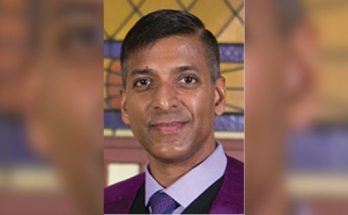By Bernardo Moreno
I first encountered the work of Jennifer Clement through her novel “Widow Basquiat,” a beautiful portrait of the heartwarming, vicious, and obsessive relationship between Suzanne Mallouk and Jean-Michel Basquiat. I fell in love with its rhythm and lyricism, along with its poetic narrative. I moved on to “Gun Love” and “Ladydi/Prayers for the Stolen,” the latter of which was a recent literary recommendation of this paper´s Imprescindibles (Essentials) section titled “Abortion: Illustrations and Consequences.” After writing that article, I decided to interview Clement, who accepted the interview request without hesitation. In addition to her successful career as an author, Clement has spent considerable time as an activist and was the first female president of PEN International (which stands for Poets, Essayists, and Novelists), an organization that favors freedom of speech. Clement lives in San Miguel.
Question: Adolescent girls are main characters in your novels. Could you tell us why?
Answer: Not always. I have other novels in which the main characters are adults, but I’m definitely very interested in the changes that happen between being a girl, then an adolescent, and finally an adult. I’m also fascinated by how people with no power manage to exercise forms of power—this is what I explore in “A True Story Based on Lies,” “Prayers for the Stolen,” and “Gun Love.” Besides that, I´m also very interested in the friendship, solidarity, and love that can exist among women.
Question: Could you tell us a little bit about the process behind writing “Widow Basquiat” and whether you are still in contact with Suzanne Mallouk.
Answer: “Widow Basquiat” was written in 1997 and published in 2000. It is really a book written from an innocent perspective since, back then, Basquiat was known in the art scene, but he was not the celebrity that he is today. I wrote it as if it was a silent film, with short chapters and quick scenes. In fact, the crux of the book is a scene where Jean-Michel and Suzanne are watching a D.W. Griffith film.
I´m still in touch with Suzanne; she is one of my best friends. Throughout the years we have travelled together to go see some of Basquiat’s exhibitions in Basel and Paris; we also went to Los Angeles to see the great exhibition about the history of graffiti. She is a psychiatrist and lives in New York. Steven Spielberg bought the rights to “Widow Basquiat,” and it will be a TV series for Apple.
Question: Out of all the tasks that PEN International undertakes, which do you find most relevant?
Answer: The most relevant is to protect and support writers at risk, in exile, or in jail; sadly, also taking actions when a writer or journalist is murdered. For PEN International, Mexico is a very important country since it is the country where most journalists are murdered. PEN believes in the importance of literature and the practice of telling stories as a way to change a society. We know great examples of this, like “Oliver Twist” by Charles Dickens (changed labor laws in the UK and made it illegal for children to work), “Germinal” by Emile Zola (changed working conditions for miners in France), and Victor Hugo’s “Les Miserables” (it lifted the poorer social classes and granted them new dignity). The ideas about women and where they stand in Mexico and the world, besides the defense of knowledge undertaken by Sor Juana Inés de la Cruz, a writer from 17th century New Spain, are not only brilliant and unique, but they also belong to the literature and wisdom of all ages.
I’ve always been interested in cases of poets who are at risk or in jail. Poetry can be so dangerous that a government or a dictator can feel threatened. This moves me; it is so intriguing. In our list of cases in PEN for this year, we have poets from Kazakhstan, Turkey, Afghanistan, Myanmar, Belarus, India, Rwanda, Cuba, Venezuela, China, Sri Lanka, and Egypt.
Question: Could you tell us what are the projects you are working on right now?
Answer: These days I’m writing a memoir. It is some sort of prelude to “Widow Basquiat,” with lots of stories about my childhood and my life in Mexico City, and even more about my days in New York City with Basquiat, Keith Haring, Colette, Andy Warhol, etc. I´m also about to finish a collection of poetry that will be released in Sweden next year.




